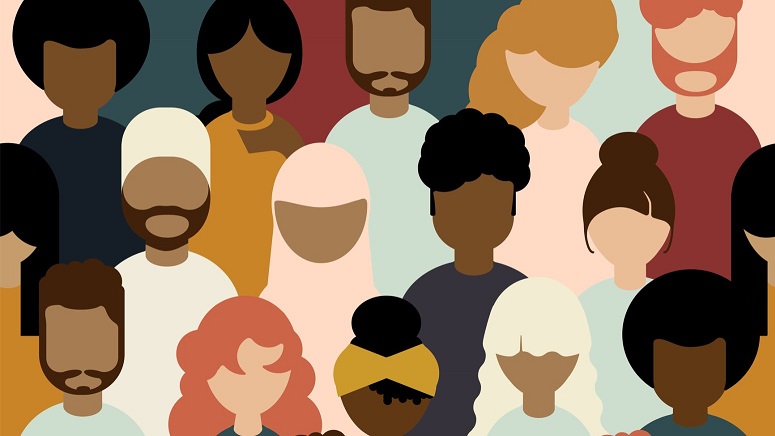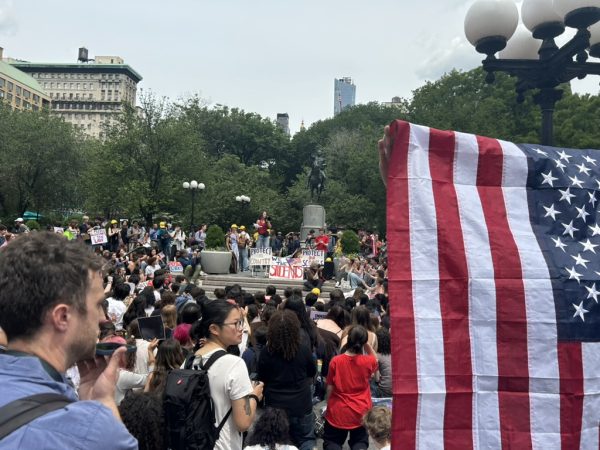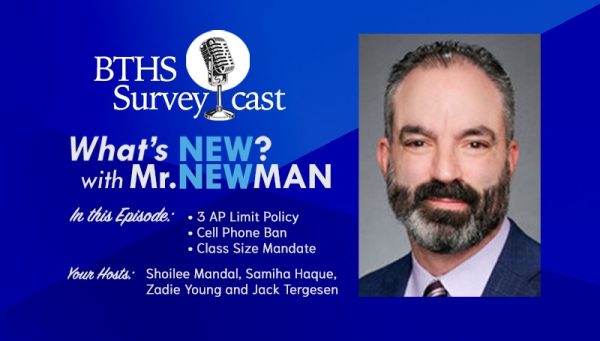Tech Takes on Affirmative Action
Since the late 20th century, affirmative action initiatives have worked to promote diversity and remedy past discrimination at many elite colleges and universities by considering race in their admissions policies and favoring members of disadvantaged or underrepresented groups. Six conservative Supreme Court justices have indicated that they are poised to end such consideration after hearing five hours of oral arguments in Students For Fair Admissions v. President and Fellows of Harvard College, a case challenging affirmative action policies at both Harvard and the University of North Carolina.
If affirmative action ends–and it almost likely will–college admissions and student populations will be forever changed. “The probability of Black applicants receiving offers of admission would drop to half that of white students, and the percentage of Black students matriculating would drop from roughly 7.1 percent of the student body to 2.1 percent,” said 33 “selective schools” in a brief submitted to the Supreme Court.
The two affirmative action cases in front of the Supreme Court were brought by Students for Fair Admissions, a coalition of Asian-American students built by conservative legal strategist Edward Blum on the grounds that affirmative action is discriminatory towards Asian students. The nonprofit membership group claimed that schools favored Black and Latino students and excluded White and Asian American students.
Brooklyn Tech is unique in its overrepresentation of Asian and South Asian students, and many of those students have weighed in on the Supreme Court case. In a recent poll, 41 percent of Tech students were in support of affirmative action, compared to 62 percent of Americans nationwide. In the same Tech poll, 14 percent said they did not support it, while 13 percent were unsure, and 32 percent did not know what it was.
The majority of students contacted for interviews were hesitant to respond, citing fear of expressing their opinion or a lack of knowledge on the topic of affirmative action. Still, those who were comfortable with being interviewed expressed strong opinions on the subject. As students have already applied to universities, or are preparing to, they shared their thoughts on how these looming supreme court decisions may affect them.
The Argument For Affirmative Action
Despite the claims made by Students for Fair Admissions, many Asian students at Tech are still in support of affirmative action. “I think a lot of the argument is what is the potential disadvantage towards white or Asian students,” said Law and Society major Fionna Shi (‘24). “As an Asian-American student, I don’t feel targeted by affirmative action because it’s not directly restricting me, or other students like me from attending these [selective] colleges, instead it’s providing a chance for POC students who might be discriminated against from attending college.”
Some students who favor affirmative action stressed that it is a system designed to level the playing field and rectify historical inequalities. “It’s not fair for colleges to… inherently favor white people because the US was built on racism as well as overtly favoring white, wealthy people by accepting so many legacy students,” said Law and Society major Kayla Ruano-Lumpris (‘24). “It’s important that colleges implement policies [such as affirmative action] specifically to help people of color in the admissions process so as a whole, people of color, particularly black people, can thrive socially and economically the way many white people always have.”
Biological Sciences major, Mark Sergeyev (‘24), added that affirmative action “helps right the wrongs done by a biased system.”
Some students argued that affirmative action works to make schools more inclusive. “The policy of affirmative action is simply not to push other applicants out, but for applicants of all backgrounds to be able to be given the same chances regardless of their social circumstances,” said Amaiya McLaren (‘26).
Many students also acknowledged how fortunate they are to be able to attend a school with abundant resources when students from other schools suffer from systemic inequities. One student argued that affirmative action could help assist those students. “I’m really grateful that at Tech we can access AP courses, test prep materials through the library, and advice through the guidance department that can set us up for success during the admissions process, but access to all of those resources definitely isn’t universal,” said a junior in the Mathematics major. “I have friends at other schools who can’t take similar courses or receive the same amount of attention from guidance counselors, and affirmative action can help close the gap between students at schools like Tech and schools that don’t have the same resources.”
Liberal Supreme Court Justice Justice Sonia Sotomayor, who is in favor of affirmative action, made a similar argument. “Sometimes race does correlate to some experiences and not others,” she said. “If you are Black, you are more likely to be in an under-resourced school. You are more likely to be taught by teachers who are not as qualified as others. You are more likely to be viewed as having less academic potential.”
The Argument Against Affirmative Action
Many other students also understood the benefits of affirmative action, but ultimately did not think it was a fair way to approach college admissions. Most of these students chose to remain anonymous.
During the hearings, conservative Justice Clarence Thomas said, “I’ve heard the word diversity quite a few times, and I don’t have a clue what it means,” he said. “It seems to mean everything to everyone.” Indeed, many Brooklyn Tech students have opined about what diversity means, and how schools should work to promote it instead of affirmative action.
“Although I believe racial diversity in universities is important, affirmative action doesn’t seem like the right way to accomplish this,” said Law and Society major Max Haidt (‘24). “It lowers the standards for certain groups of students, which will result in them feeling worse in class and unable to participate and progress as much as their peers.”
One anonymous sophomore stressed the idea that “affirmative action could make qualified candidates lose positions to unqualified people just because they are part of a minority.” She explained that all people deserve equal opportunities and rights, but affirmative action “prioritizes a person’s color or ethnicity over their actual qualities.” However, this is not true, because affirmative action does not generally select unqualified applicants, but rather preferences equally qualified candidates of color.
Still, this same student did agree that society should work to solve systemic problems in other ways. “I don’t think anyone should have an advantage over someone else just because they are a part of a minority,” said the sophomore. “A person getting a job or being admitted into a school should be based on their qualifications. I agree that some people have been disadvantaged their whole lives, but I believe that we as a society should work to resolve systematic issues rather than using affirmative action. If we work to create an education system that allows [people of color] to have equal opportunities from the beginning, we wouldn’t need to factor in race in making decisions of who gets accepted to universities.”
“Affirmative action is entirely focused on equity. It addresses the problem too late in a student’s life where one college application is given higher ranking mostly because of a person’s race,” said Haidt. “I don’t have any specific solutions but it should be something targeted towards students before they apply for college.”
One senior in the Aerospace Engineering major argued that affirmative action itself is racist. “It’s racist to discriminate based on race in any case,” he said. “It doesn’t matter the race targeted, if you discriminate solely based on that then it can be taken as blatantly racist.”
He provided examples of possible solutions that he believes will address diversity in colleges in place of affirmative action. “It’s far better to provide the same opportunities from the start of people’s lives,” he said. “For example, you can make school zoning less restrictive, you can provide higher quality education, you can help areas with less business develop and fix issues with the economy with proven solutions.”
The same anonymous senior also argued that race is not an accurate measure to calculate if a person is inherently disadvantaged. “It would be much smarter to base it on income or a factor that’s more significant than race. The experience that people of a certain race can have can vary a lot. Not every black person was raised poor and not every Asian person or white person is in a place of economic privilege.”
The State of the Debate
Tech students have also expressed strong beliefs about affirmative action in class discussions. One AP English Language and Composition teacher, Ms. Kim, tasked her students with reading a New York Times article about affirmative action and discussing it in class. Math major Luke Opalack (‘24) remembered that when it came to the class conversation, only three students supported the policy, often based on critical misunderstandings. “I remember [there being] an argument that it’s not fair that certain groups get an advantage on admissions, and that admissions should be holistic rather than having race be a determining factor,” he recalled. “I remember [one student’s] quote being ‘a poor black kid and a poor white kid have the same problems.’”
With affirmative action now seemingly doomed, universities will most likely turn to other solutions or programs to promote diversity within schools. Many schools might choose to go test-optional to open doors for minority students who might otherwise not consider applying. Programs like Questbridge could be expanded or emulated to increase the percentage of low-income students attending the nation’s best universities.
Regardless of personal perspective on affirmative action, most students echoed that it is not a perfectly effective long-term solution, but it still has made a difference. “Colleges are looking more at potential and talent than they would be otherwise, which is more equitable in my opinion,” said the junior in the Mathematics major. “The system still definitely isn’t perfect but I think it helps [the admissions process] be slightly more equal.”

Kiran Yeh is a Co-Editor-in-Chief. Her journey with The Survey began during her sophomore year when she...









































